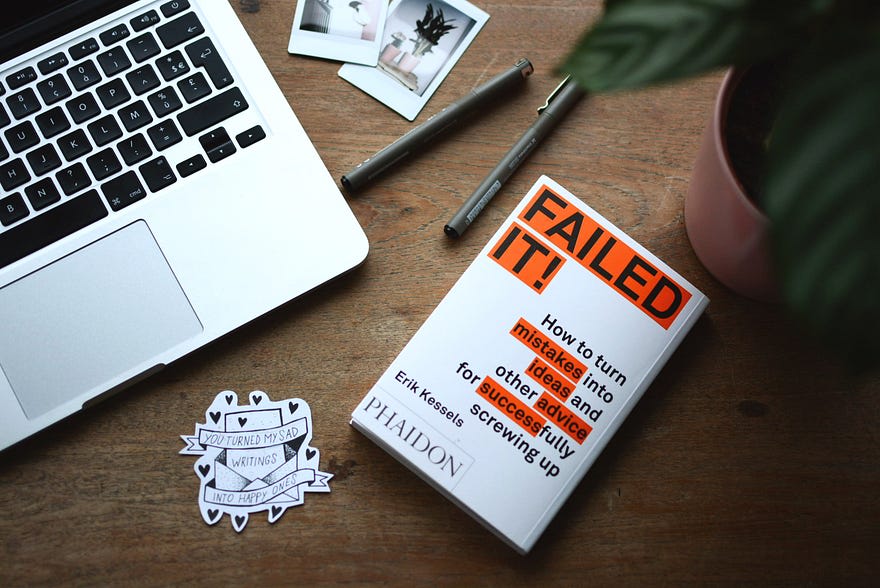…On Being a Lifelong Learner
A conversation with my younger self
Having recently completed a nine-month long learning goal I’ve been reflecting on what it means to be a “lifelong learner,” why it is important, and what benefits and drawbacks result from following this path. Luckily for me, a recent trip to Meyrin, Switzerland allowed me to discuss this with my younger self and provided both of us with a unique opportunity to expand our view on this topic.

Photo by Hal Gatewood on Unsplash
During a hike between Meyrin and Vernier, I was admiring the countryside when the odor of ozone became prominent, my vision blurred, and I became disoriented and felt detached from reality. Quite suddenly everything snapped back into focus with the appearance of a purple light that seemed to emanate at the same time from everywhere and nowhere.
My first thought was that Prince has arisen from the Great Beyond or perhaps I had an acid flashback. However, when my vision came back into focus, there in front of the 63-year old me was my 21-year old doppelgänger. After a few awkward moments, we both adjusted to our new reality and, oddly enough, drifted into a discussion of life, the universe, and lifelong learning.

Photo by Cathal Mac an Bheatha on Unsplash
21-year old Me… ”Man, what happened to your hair?”
63-year old Me… “Genetics, age, and not wearing a cap when younger. You can fix this if you’d only wear a hat.”
21-year old Me… “No way! That would mess up my hair, and I have to look my best. I’m completing my undergraduate degree in a couple of months, and I’m looking forward to getting out of school and getting a real job!”
63-year old Me… “Well you may be completing your degree, but you won’t stop learning. At least you shouldn’t stop learning!”
21-year old Me… ”Seriously, I’m done with school. I’ve learned what I need to know, and I’ve completed my studies with distinction. I know as much now as some of my professors.”
63-year old Me… “You don’t know crap. You might know as much as some of your professors, but there’s always someone better, smarter, and who knows more. You should seek out advisors and mentors, even if only informally, who will challenge you and make you stretch both your outlook and what you know.”
“I belong to an organization called Chingu.io that does just this. Even though this doesn’t exist in your timeframe, there are local user groups you should look into joining.”
“Trust me on this. You don’t want to be the smartest person in the room because then there’s not as much opportunity for you to grow. Being around folks who are willing to teach, challenge, and motivate is invaluable.”
21-year old Me… “But If I get a good job I’ll be set for life. If can get on at a company like IBM there won’t be any need to learn much more. They’ll provide the on-the-job training I’ll need. Mainframes are here to stay man! Besides, I’m an Assembly programmer, and that’s at the top of the proverbial heap in terms of cutting edge technology.”
63-year old Me… “You never studied economics or psychology did you?”
21-year old Me… “Nope. CS and Math for me.”
63-year old Me… “It shows. Companies have a vested interest in what they are already doing unless there’s some economic or social pressure that affects their revenue. This means that in the absence of external pressures companies always gravitate to improving on what they already do rather than innovating outside their comfort zone. What you will learn from all but the most progressive employers is what they need you to know to make nano-sized improvements to existing technology. When external forces come to bear that push them outside of that comfort zone it’s often too late — they either keep burying their head in the sand hoping that the ‘old days’ will return or they’ve depleted their capital and revenue to the point they don’t have the resources to innovate.”
21-year old Me… “Seriously??? IBM, HP, and others have been around forever.”
63-year old Me… “My advice is to sell your IBM stock.”
“There’s another reason for continuing to study, regardless of whether it’s formal or informal. You may not want to be at the same employer for your entire career. Just as companies get complacent in their products, humans get complacent and too comfortable in our station in life. Continuing to learn with the goal of improving what you already know AND to pick up new knowledge and skills not only makes you more valuable as an employee, but it also makes you more valuable in the job market, and more importantly, it lets you expand your horizons.”
21-year old Me… “Expand my horizons???”
63-year old Me… “Yes. Stretching yourself to learn outside your chosen area of specialization or discipline has two benefits.”
“First, supplementing your deep knowledge of a subject with knowledge from other areas in the same discipline can result in valuable insights on how to make significant improvements in existing processes. For example, knowing the basic processes required in an Accounts Receivable application will let you find spots where the application of advanced searching algorithms could significantly improve performance over a simple linear search of accounts.”
“The second benefit comes from going outside your discipline (in our case Computer Science) to learn the basics of another discipline.”
21-year old Me… “How can that help? I want to write operating systems so how is something like accounting going to help? Some of my best friends are accountants, but accounting is boring.”
63-year old Me… “I’m so glad I’m not you anymore! Here’s how it can help moron. Let’s say you have an idea for a new OS feature. How would you go about proposing it to your boss.”
21-year old Me… “Well, we’d go to lunch, and I’d describe what I have in mind, how neat it is, how much fun it will be to create it, and how it will help the user.”
63-year old Me… “Sadly, ‘neat’ and ‘fun’ aren’t decision making factors in business. How it helps the user is a factor, but what’s really key to decision makers is what revenue will result from it, how much will it cost to develop, and does it improve the companies position in the marketplace. Understanding the basics of accounting will let you define these in the terms your leaders are accustomed to and will let you build a business case that has a better chance of being accepted.”
“While we are on this think about this. Psychology and sociology.”
21-year old Me… “My girlfriend is studying psychology, and I don’t get her
or it.”
63-year old Me… “Don’t worry about it. That won’t be a problem in another
six months, but I digress.”
“Having a basic understanding of both psychology and sociology will help you better understand your users and the forces that influence them. This will help you identify real and perceived “needs” that can attract users to the products you build and help you to retain them.”
“Remember that you don’t have to like a subject to be able to see its benefits and to use it.”
21-year old Me… “But holding down a job and learning is going to be hard. I want to have fun.”
63-year old Me… “Learning is fun, and the trick is to make it part of your routine, so it doesn’t consume a disproportionate amount of time compared to other aspects of your life. Unless, of course, you want it to. This can be as simple as incorporating a few hours a week to reading and then creating projects to put what you’ve learned into practice. Remember that learning is the combination of study + practice.”
21-year old Me… “What you are saying kind of makes sense. But even though our industry is changing it’s not going to do so all that much. Given that isn’t this a bit of a wasted effort?”
63-year old Me… “If that were only true. Here’s an exercise for you. Write down the most significant events, discoveries, and events since 1900 and then plot them as a cluster diagram by date. Then see what you think about the rate of change.”
“The fact is that change is accelerating with each decade due to a combination of technology and societal factors. You can either embrace change and flow with it, or you can let it roll over you. One way to accept change is to build on what you know and to strive to gain new knowledge. In other words, become a lifelong learner.”
21-year old Me… “Radical. I have more work to do.”
63-year old Me… “It never stops sonny. Get to it!”
At this point, we noticed the smell of ozone had returned along with blurred vision and that feeling of disorientation. With a flash of purple light, my senses returned, and I found myself by myself in my current reality.
My younger self was gone, presumably back to his timeframe and unharmed since I’m still here.
I can only surmise that this event was the result of some weird experiment at CERN involving the LHC and tachyon particles. This is oddly appropriate since CERN is devoted to expanding our knowledge of fundamental physical forces that shape our universe by increasing our collective learning.
Me? When I get back home I’m going to sit on my front porch with my iPad, catch up on the latest TC39 proposals, finish the GraphQL course I’m taking, and yell at the neighborhood kids to get off my lawn.
Keep learning and fail forward!

Photo by Estée Janssens on Unsplash






Top comments (0)